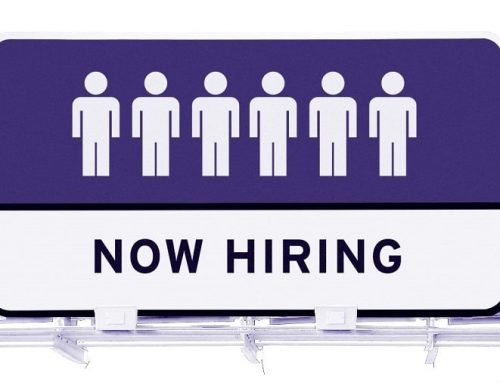Minimum Wage Increase Effects on Businesses
You have to pay your employees – right?
Record Low Unemployment Is Pushing Wages Up For Small Local Ice Cream and Frozen Custard Shops
If you run a small local ice cream or frozen custard shop in the U.S., then record low unemployment levels shouldn’t have gone unnoticed. Low unemployment is great news for the nation as a whole. Conversely, it can be bad for some small businesses like independent ice cream shops. While more people enjoy employment in productive work, there are fewer opportunities for smaller local shops to get low-cost labor. Consequently, this begins to eat into their profit margins.
Per Trading Economics, the U.S. unemployment rate was 3.7% in June, 2019. This and the previous month were the lowest for decades. After almost the longest economic expansion in history, the number of available idle workers is at a record low. Why is that a problem? The wages are picking up making it difficult for small business owners to meet payroll.  As companies demand more labor from a dwindling supply of workers, they begin to compete against each other. As a result, they must increase the wages of their employees.
As companies demand more labor from a dwindling supply of workers, they begin to compete against each other. As a result, they must increase the wages of their employees.
After a decade of stagnation, wages rose substantially in 2018. They are expected to grow throughout 2019. Many businesses can absorb the minimum wage increase effects – particularly their payroll expense. Unfortunately, this is creating a hardship for small, local businesses. Higher wages equate to many firms raising the price of their ice cream and frozen custard. This will most likely hurt their competitive position with their “big box” competitors!
Raising prices isn’t always the answer. A lot of firms are offering cheap alternatives and economies of scale. On the other hand, small operators struggle to keep costs down to a level that customers can accept. Rising wages may hurt small local shops in the US.. by forcing them to raise prices higher than franchises who can absorb these costs.
Some Minimum Wage Increase Effects
Rising Political Demand for Raising the Minimum Wage to $15 Per Hour
- Standard economics tells us that if you raise the minimum wage above what the market sets, there will be an excess supply of labor and limited demand.
- Wages are high enough to incite more people to enter the labor market. This hike in the minimum wage is too high for companies to want to hire people at those prices.
- That’s the theory anyway. The reality is, of course, much more complicated. For ice cream and frozen custard shops, paying $15 per hour per employee will mean that product prices will need to rise.
- The worry for some ice cream and frozen custard shops is that higher prices will keep customers away. Higher wages could put some firms out of business.
So far, policymakers have resisted implementing the $15 wage. They know that it will have a considerable impact on the many companies in the U.S. that rely on cheap workers. Most ice cream servers are not worth $15 per hour to the people employing them. This means many existing servers will be made redundant. This will be a terrible outcome for the people who rely on the income.
Some commentators will point out that raising the minimum wage doesn’t lead to higher levels of unemployment in all situations. But this is true only for particular types of markets, like monopolies. In most cases, it’s a problem.
Small local ice cream and frozen custard shops should adapt to increasing labor market costs. They can do this by ensuring they have the most reliant and efficient ice cream and frozen custard machines. They may also need to consider expert advice on the operations and setup of their stores. If you’re in a position that requires consultation, our President and Founder, Tony Carey is your perfect choice. Please reach out to him via the ways found on this blog post!


